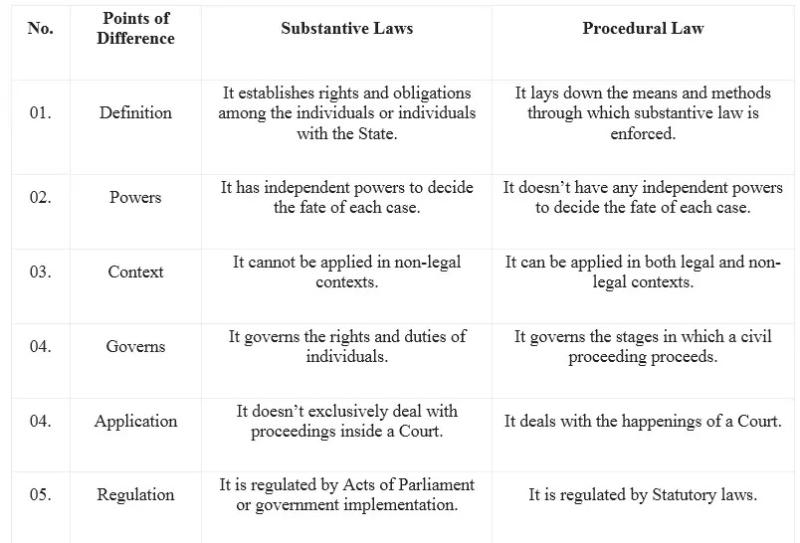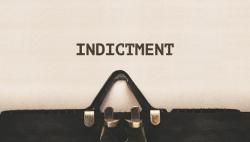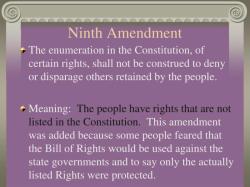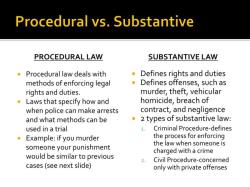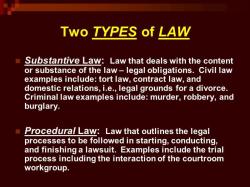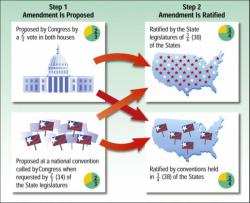What is procedural law deals with what?
Procedural law deals with the rules and processes that govern the legal system and how legal cases are handled. It establishes the methods and steps by which substantive laws (laws that define rights and obligations) are enforced. Procedural law focuses on the procedures, practices, and mechanisms used in legal proceedings to resolve disputes and administer justice. Here are key aspects of what procedural law deals with:
Legal Procedures:
- Procedural law outlines the specific steps that must be followed in legal proceedings. This includes rules for initiating a case, presenting evidence, making arguments, and reaching a resolution.
Court Processes:
- It governs the operations and processes of courts. This includes rules for filing complaints, serving legal documents, scheduling hearings, conducting trials, and rendering judgments.
Due Process:
- Procedural law is fundamental to ensuring due process, which guarantees that individuals are treated fairly and have the opportunity to be heard in a legal proceeding. It safeguards against arbitrary or unjust treatment.
Civil Procedure:
- In civil cases, procedural law governs how private individuals or entities can bring lawsuits against each other. It includes rules for initiating a lawsuit, discovery (gathering evidence), and the trial process.
Criminal Procedure:
- In criminal cases, procedural law outlines the steps involved in investigating and prosecuting alleged criminal offenses. It includes rules for arrest, search and seizure, interrogation, trial, and sentencing.
Appeals Process:
- Procedural law also covers the rules and processes for appealing decisions made in lower courts. It outlines how higher courts review and potentially overturn or affirm decisions.
Evidence Rules:
- It establishes rules for the admissibility of evidence in court. This includes guidelines for presenting and challenging evidence during trial.
Enforcement of Judgments:
- Procedural law addresses how court judgments are enforced. This involves mechanisms such as court orders, garnishments, and other legal processes to ensure compliance with court decisions.
Alternative Dispute Resolution (ADR):
- It may also cover procedures for alternative methods of dispute resolution, such as mediation or arbitration, as alternatives to traditional court litigation.
Procedural law is crucial for the fair and efficient administration of justice. It provides a framework for resolving disputes and ensures that legal proceedings are conducted in a consistent and predictable manner. The specific rules and procedures can vary across legal systems and jurisdictions.
Areas and aspects covered by procedural law
Procedural law, also known as adjective law, focuses on the rules and processes by which the legal system operates, rather than the specific substantive rights and wrongs themselves. It governs every stage of a legal proceeding, from initiating a case to enforcing a judgment. Here are some key areas and aspects covered by procedural law:
General areas:
- Jurisdiction: This determines which court has the authority to hear a particular case, considering factors like the subject matter, location, and parties involved.
- Pleadings: These are formal documents filed with the court outlining the claims and defenses of each party. Procedural law dictates the format, content, and deadlines for filing pleadings.
- Discovery: This allows parties to gather evidence from each other before trial, through techniques like interrogatories, depositions, and requests for production of documents. Procedural rules govern the scope and timing of discovery.
- Motions: These are requests made to the court for specific rulings or actions within a case, such as dismissing a claim or compelling witness testimony. Procedural law specifies the types of motions available, their grounds, and how they are filed and decided.
- Trial: Procedural rules govern the entire trial process, including jury selection, presentation of evidence, arguments by lawyers, and instructions to the jury.
- Appeals: If a party disagrees with a court's decision, they can appeal to a higher court. Procedural law dictates the grounds for appeal, filing deadlines, and appellate procedures.
- Evidence: Rules of evidence govern what type of evidence can be presented in court and how it must be presented. These rules aim to ensure fairness and reliability of the evidence.
- Judgments and remedies: Procedural law dictates how the court enters a judgment (ruling) in a case and how that judgment is enforced. It also defines the types of remedies available to victorious parties, such as monetary damages or injunctive relief.
Specific aspects:
- Civil procedure: This governs litigation between private parties, such as breach of contract cases or personal injury lawsuits.
- Criminal procedure: This covers the rights and procedures surrounding criminal investigations, arrests, trials, and sentencing.
- Administrative procedure: This regulates the actions of government agencies in making decisions and implementing laws.
Furthermore, procedural law emphasizes due process, which ensures that all parties involved in a legal proceeding have fair and equal treatment under the law. It also seeks to ensure efficiency and clarity in the legal system by establishing clear rules and procedures for every stage of a legal case.
By understanding the scope and importance of procedural law, individuals and organizations can navigate the legal system more effectively and protect their rights.
I hope this provides a comprehensive overview of the areas and aspects covered by procedural law. If you have any further questions about specific aspects or areas, feel free to ask!
